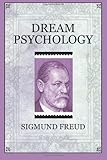Anything a person does is driven by some certain desire to acquire a predetermined goal. Cognitive psychology theorists endeavor to study and to fully conceive the nature of motivation or desire. People do one thing in order to achieve a specific goal; however understanding that doing one thing is necessary to achieve another thing is insufficient for a person to start doing the “one thing”. This fact leaves nothing else but to bring out the idea of desire. Therefore, the knowledge, or the cognition, about particular characteristics of actions and objects is required but is not enough to motivate a person to start doing relevant things. Another important component is person’s personal desire coming from within a person; otherwise the nothing will be done.
In order to achieve some C, a person has to do a particular action B, but, as mentioned above, the person needs to wish this C in order to get to action B. These are the basic concepts of the folk psychology, that try to explain the nature of motivation. On one hand, these concepts as well as the “scientific” terms of this branch are incompatible with genuine psychology. They also fail to explain the real procedures of behavior, although they seem quite satisfactory and sufficient. These folk concepts are mainly different from Maze’s theory. On the other hand, however, there truly are similarities in this folk “purpose” or “desire” concept and Maze’s understanding of nature of motivation.
The main differences between the folk cognitive psychology concept and Maze’s instinctual theory are the following; folk psychological concept of desire suggests that the mechanism from its inception till the achievement is mental. In other words, a person fully understands actions, means, their goals, and ends. What Maze offers, is that processes in a person behavior are “neutral”(Maze, 1983, p. 150). What he meant is a human has certain centers in his or her brain, which are responsible for things like thirst, hunger, self-defense, sex, and others. And so whenever a person’s get excited, the person immediately receives a signal and does everything necessary to satiate the need. Of course, people would not defend themselves when are thirsty, rather they would try to get something to drink, which means that they understand what is going on, but have no control over the phenomenon. Folk psychology, on the other hand, suggests that people consciously motivate themselves to get a drink, but Maze offers another view, which completely satisfies the needs of the science to explain human behavior. Of course both folk psychology and Maze’s theory claim that a person does one thing in order for the other thing to happen, but the approaches and mechanisms are completely different.
| BUY NOW | BUY NOW | BUY NOW |



No comments:
Post a Comment